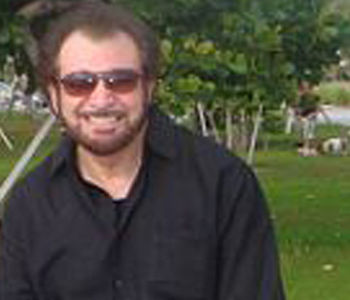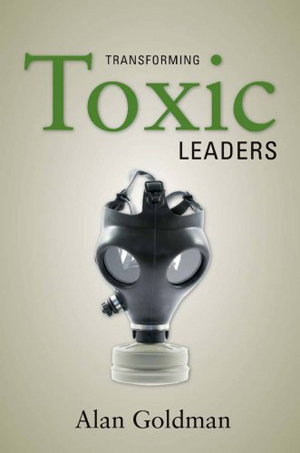
In my new book Transforming Toxic Leaders I speak from behind closed corporate doors to provide a unique view into the dark side of leadership. Based on executive coaching and consultations I tell surprising stories of companies struggling to understand and remedy what goes wrong. I reveal how the behind-the-scenes fears, hostilities, and internal warfare disclosed by sometimes brilliant leaders require highly personalized and confidential coaching and treatment. I get called in after grievances, acts of sabotage and plunging productivity threaten the very existence of once marquee organizations.
Transforming Toxic Leaders calls attention to the high incidence of leaders who bring pre-existing psychological and emotional disorders into their workplace—and how crises eventually bring out the toxic tendencies that were in remission. By telling the true stories of destructive behaviors and agendas I show how leaders turn toxic due to poorly conceived downsizing and abrupt overnight restructuring. The cost of toxic leadership is quite high and the longer it is allowed to germinate the costlier it becomes. Bringing a background in counseling psychology into my coaching and consulting, I train companies to sharpen their toxin detection and toxin handler skills.
I build on a strong theoretical foundation, grounded in research undertaken over the past few decades, and provide tools for action. These are in the form of stories that I’ve selected from my wide repertoire of cases, such as the heart surgeon’s operating team crisis at Eisenhower Heart Institute and the “savage downsizings” at Bentley Pacific and Jarling-Weber. These cases demonstrate ways to better handle problems that may unfold in readers’ own workplaces.
These narratives culminate in a chapter providing a diagnostic list of 125 dimensions of toxic leadership and 125 corresponding strategies for detoxification. Human resource professionals, business managers, and executives seeking to resolve troublesome leader behaviors, hastily conceived restructurings, and employee uprisings will find a wealth of strategies in my book.
“Leaders with lower levels of toxicity and a mild dose of hyperactivity, narcissism, or antisocial behavior may exhibit some extremely positive and super-functional behaviors, such as extraordinary levels of energy, elevated passion, and a tendency to be highly innovative. The very disorders that implode leaders and destroy organizations may also provide, in ‘lower doses,’ a creative, innovative, and obsessive edge to those who fall on the milder side of the spectrum of toxicity.”
I argue that a single-minded concentration on positive leadership alone is one-sided, skewed, and unable to address the psychology of high-level leaders and extremely complex organizational systems. A failure in leadership lies at the center of our current economic debacle. When consistently bad behavior and long term patterns of impoverished planning and strategy emanate from the top—metastasizing like an organizational cancer—dysfunction, pathology and collapse follow.
The inability to manage workplace relationships and the human side of enterprise strike at the very heart of business. While leaders may achieve a level of brilliance in their areas of expertise, it is not uncommon to witness the same renowned figures falter and stumble, exhibiting extreme arrogance and narcissism, and directing abuse toward important colleagues and customers.
The high cost of bad behavior in corporate circles surely brings to mind the most unethical and downright diabolical leaders and companies, whether they are Bernie Madoff or Kenneth Lay and Jeffrey Skilling of Enron. Cases such as these can serve as a wakeup call, reminding us of the potentially destructive reach of leadership. But one should not overlook the fact that Madoff, Lay, and Skilling were also exceptionally intelligent and privileged leaders who excelled in their areas of expertise, even while carrying out insidious and malicious strategies against employees, colleagues, and clients.
Decadent organizational policies surely create toxic leaders, much as an executive with a personality disorder or a CEO with a long-term history as a psychopath may infect his or her executive board and management team with a virulent psychological disease. But brilliance itself knows of the dark side of human behavior.
Toxic leaders and organizations can in effect be both “patients” and “clients” who undergo highly pointed forms of “detoxification” and guided, positive transformation. Both individuals within an organization and the organization as a whole become “sick” and “toxic” by virtue of their leader spreading his or her own affliction like a contagion.
Also consistent with the medical model is the assumption that the illness can be treated and the individual, divisional, or corporate patient can be nursed back to health. Even a previously toxic leader can be transformed, becoming more functional and effective, even ultimately emerging as a figure marked by enlightened, authentic, and even super-functional leadership skills.
An understanding of psychological dimensions allows for a more accurate assessment of leaders who fall within the “toxic category.” Since toxicity is a fact of company life, it is better to speak of it in terms of levels. Lower levels of toxicity must be distinguished from the higher. For example, a leader diagnosed with only several symptoms from narcissistic personality disorder, intermittent explosive disorder, or antisocial disorder indicates a “normal pathology” and falls short of high toxicity. Curiously, leaders with lower levels of toxicity and a mild dose of hyperactivity, narcissism, or antisocial behavior may exhibit some extremely positive and super-functional behaviors, such as extraordinary levels of energy, elevated passion, and a tendency to be highly innovative. The very disorders that implode leaders and destroy organizations may also provide, in “lower doses,” a creative, innovative, and obsessive edge to those who fall on the milder side of the spectrum of toxicity.
In my work with business leaders and their organizations, I bring an active counseling psychology perspective into play, working with executives one-on-one. Naturally, I entertain the possibility that highly intelligent professionals have to struggle at times through everyday conflicts and even personal pathology.
My first “executive case” was in the late 1990s when I worked with a senior manager of a Fortune 500 company, both in individual treatment and on site in his organization. Diagnosed with attention-deficit hyperactivity disorder (ADHD), the manager brought this pre-existing condition into the company with him, infecting his entire division with the disorder.
I had revealed an ADHD manager and an ADHD organization: This spread of a psychological pathogen to employees via the power and influence of the leader is the essence of the concept of “toxicity.” The destructive behaviors inherit in the individual leader’s personality will undoubtedly spread and take their toll on an organizational system.
Transforming Toxic Leaders opens up a broader dialogue and a more differential diagnosis of complex organizational life. Situated at the apex of their organizations, leaders exert profound influence, possessing the power to heal and to wound, to inspire or to bully, to create or destroy. Only by paying close attention to the darker side of toxicity can one boldly investigate the genius CEO who takes a deviant turn when facing his contested child custody case and divorce, temporarily operating out of fear. The CEO orders a vicious, overnight downsizing when his dark personal tragedy is compounded by a collapse on Wall Street and a plunging market share. What is the antidote? In my book, I provide numerous prognoses and remedies in the form of “leadership detoxification.”
Contrary to much behind-the-scenes corporate strategizing, I take issue with the predominantly authoritarian and bullying leadership style enacted during massive corporate downsizings, rightsizings, and layoffs. For example, a coercive and intimidating approach to requiring employees to participate in extensive overtime following a downsizing is a major source of toxicity. Instead, I propose a dialogic relationship-building approach, which is essential to cushion and lessen toxic impact and fallout from a downsizing. Compassionately and genuinely responding to employees’ anger and fear is critical. Emotionally intelligent leadership techniques elicit far more positive employee responses, lower the incidences of grievance and lawsuits, and provide an antidote to the employee perception of widespread abuse.
Beyond detoxification, the implications of this book lie in the arena of the transformation of toxic leadership behaviors into highly functional and intelligent corporate strategy. When one cannot change the one-of-a-kind renowned mitral valve heart surgeon into a doctor with people skills, what are the alternatives? Does one have to eliminate the master surgeon who is the reason for the company’s ranking as a world center for excellence? Or can he be transformed?
By shifting to dual leadership, I helped a highly toxic heart surgeon transform into a super-functional member of the hospital’s family. The treatment was not performed on the doctor, but rather on the organizational system. The surgeon was allowed to concentrate on his technical expertise and incomparable talents in the operating room. Meanwhile, his new leadership partner, also a master surgeon, was assigned to the human-side of the cardiology division, handling the relations between the people there.
What is the moral of the story? Transformation may or may not require a radical reconstruction of the leader in question. With time, patience, and a differential diagnosis I ascertained that by rearranging a few chess pieces the formerly toxic doctor could be placed in a position where he could shine almost all of the time—while his new partner could simultaneously shine via the utilization of his extraordinary people skills.
“Emotionally intelligent leadership techniques elicit far more positive employee responses, lower the incidences of grievance and lawsuits, and provide an antidote to the employee perception of widespread abuse.”
Without a management fad, a flavor-of-the-month fix, or a purely inspirational ploy, I approach my clients as a professor, a coach and a consultant. I diagnose, intervene and prescribe. The leader or corporation does not always make for a congenial, truthful, or willing patient. Moreover, every chink in the armor of a leader or flaw in corporate policy necessarily points in multiple directions, complicating the picture. A differential diagnosis must replace simple-minded rhetoric and quick-fix leadership schemes. The most dynamic and ingenious of leaders will also have toxic dimensions to his personality and behavior.
Toxicity is a fact of leadership and organizational life. It is little understood but much talked about. It is time to sober up the conversation and take a hard look at human nature, the role of leaders, and the flexibility and resiliency of organizational systems. We must waste less time on the quest for instant fixes, magical surveys and hollow data and metrics. Only by entering the narratives of leadership and corporate life can we walk the road toward positive transformation.


Dr. Alan Goldman is a Professor of Management at the W. P. Carey School of Business at Arizona State University. Goldman’s background includes executive coaching, management consulting, leadership training, and presentations for Fortune 500s and institutions in the U.S., Israel and Japan. He is the author of a variety of academic and professional articles on toxic leaders and dysfunctional organizations. He also served as “Trade Around the World” writer for the first Bush administration’s and Congress’s international publication Five Hundred. He is also the author of Doing Business With the Japanese: A Guide to Successful Communication, Management and Diplomacy (SUNY, 1994), about his cross-cultural consulting in Tokyo.